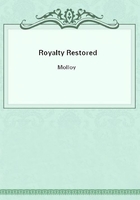
第123章 CHAPTER XX.(6)
Now Charles II., having some knowledge of chemistry and science, looked upon the society with favourable eyes; and in the first year of his restoration desired to become one of its members;expressed satisfaction it had been placed upon a proper basis in his reign; represented the difficulty of its labours; suggested certain investigations, and declared his interest in all its movements. Moreover, in the year 1662 he bestowed on the society a charter in which he styled himself its founder and patron;presented it with a silver mace to be borne before the president on meeting days; and gave it the use of the royal arms for a seal. Nor did his concern for its welfare cease here. He was frequently present at its meetings, and occasionally witnessed, and assisted "with his own hands," in the performance of experiments. Some of these were of a singularly interesting character; amongst which may be mentioned infusion of the blood of an animal into the veins of a man. This took place in the year 1667, the subject being one Arthur Coga, a minister poor in worldly substance, who, in exchange for a guinea, consented to have the operation performed on him. Accordingly two surgeons of great skill and learning, named Lower and King, on a certain day injected twelve ounces of sheep's blood into his veins. After which he smoked an honest pipe in peace, drank a glass of good canary with relish, and found himself no worse in mind or body.
And in two days more fourteen ounces of sheep's blood were substituted for eight of his own without loss of virility to him.
Nor were experiments in vivisection unknown to the Royal Society, as it was called, for the "Philosophical Transactions" speak of a dog being tied through the back above the spinal artery, thereby depriving him of motion until the artery was loosened, when he recovered; and again, it is recorded that Dr. Charleton cut the spleen out of a living dog with good success.
The weighty discourses of the learned men who constituted the society frequently delighted his majesty; though it must be confessed he sometimes laughed at them, and once sorely puzzled them by asking the following question. "Supposing," said Charles, assuming a serious expression, and speaking in a solemn tone, "two pails of water were placed in two different scales and weighed alike, and that a live bream or small fish was put into one, now why should not the pail in which it was placed weigh heavier than the other?" Most members were troubled to find the king a fitting reply, and many strange theories were advanced by way of explaining why the pail should not be found heavier, none of them being thought satisfactory. But at last a man sitting far down the table was heard to express an opinion, when those surrounding him laughed; hearing which the king, who had not caught his words, asked him to repeat them. "Why, your majesty," said he boldly, "I do believe the pail would weigh heavier." "Odds-fish!" cried Charles, bursting out into laughter, "you are right, my honest fellow!" and so the merriment became general.
The Royal Society was composed of men of quality with a genius for investigation, and men of learning eager for further knowledge. Persons of all nationalities, religions, and professions were admitted members; and it was continually enriched by the addition of curiosities, amongst which in particular were an herb which grew in the stomach of a thrush;the skin of a Moor tanned, with the beard and hair white; a clock, having movements directed by loadstone; an ostrich, whose young had been born alive; mummies; strange fish; and the hearts and livers of vipers. Likewise was the society endowed with gifts, amongst the most notable being the valuable library of Henry Howard, afterwards Duke of Norfolk.
Fostered by this society, science received its first impulse towards the astounding progress it has since achieved. Nay, in this reign the germs of some inventions were sown, which, subsequently springing into existence, have startled the world by their novelty, utility, and power, Monsieur Sorbiere, when in England, was shown a journal kept by Montconis, concerning the transactions of the Royal Society, in which several new devices, "which scarce can be believed unless seen," were described.
Amongst these were an instrument for showing alterations in the weather, whether from heat, cold, wind, or rain; a method for blowing up ships; a process for purifying salt water, so that it could be drunk; and an instrument by which those ignorant of drawing could sketch and design any object. He also states Dr.
Wallis had taught one born deaf and dumb to read.